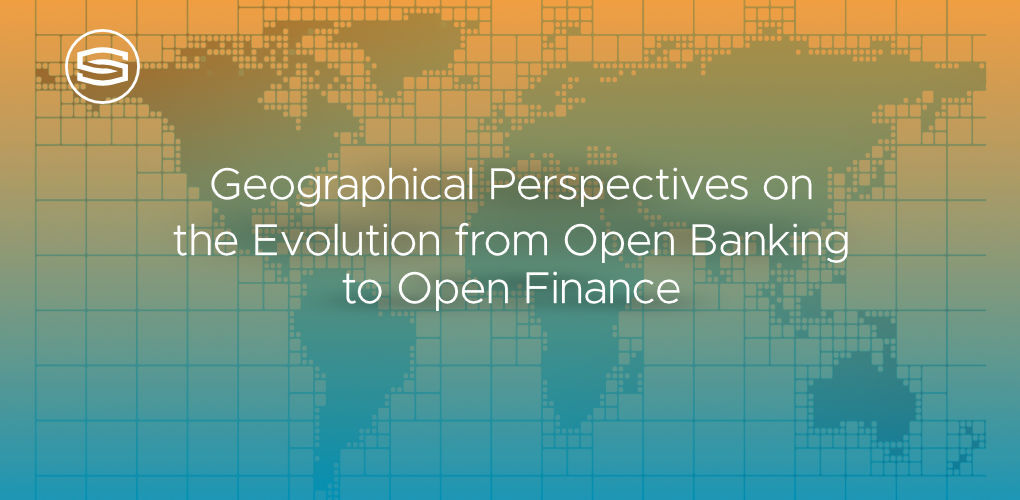
Insights & Opinions
Geographic perspectives on the Evolution from Open Banking to Open Finance
Mon, 28 Oct 2024


The shift from open banking to open finance is happening globally, but the pace and priorities differ greatly by region. Each country faces unique regulatory, technological, and financial inclusion challenges that shape how open finance is implemented. From Europe’s structured regulatory frameworks to Latin America’s push for financial inclusion and the Middle East’s centralised innovation, the differences are significant.
In this respect, one of the panels at the Open Banking Expo was extremely valuable. Moderated by Michelle Beyo, Founder and Chief Executive of Finavator, the panel brought together the learnings from the following experts:
- Leo Cullen, Head of Business Development, Ostia
- Ghela Boskovich, Head of Europe, Financial Data and Technology Association
- Miguel Diaz, Head of Toronto Centre, BIS Innovation Hub
- Sinan Imamoğlu, BaaS & Open Banking Manager, aktif bank
- Abdulla Mashaal, Head of Open Banking, Emirates NBD
- Alejandro Servin, Head of Open Banking, BBVA
Below is a closer look at how regions like Europe, Latin America, the Middle East, Kenya, and Turkey are approaching this transformation.
Europe: Pioneering Regulatory Frameworks
Europe remains a leader in the open banking movement, with the UK and EU setting global benchmarks through the implementation of PSD2 (Revised Payment Services Directive). In the UK, open banking mandates have led to the widespread sharing of financial data through APIs, giving third-party providers (TPPs) access to consumers’ banking information. This has resulted in a vibrant ecosystem of fintechs providing new services, from payment initiation to personal finance management.
Ghela Boskovich emphasised how Europe is now looking beyond banking data, with "smart data" use cases poised to reshape sectors such as energy, transportation, and retail. However, despite these innovations, a major hurdle remains the lack of a universal digital identity system in the UK. Without it, fully realising the potential of open finance is a challenge.
Ireland has experienced slower progress despite being closely aligned with the UK's regulatory structure. Leo, the panellist from Ireland, highlighted the lack of collaboration between banks and fintechs as a key impediment. Ireland’s banks have been slower in embracing open banking, though innovations like Revolut have demonstrated the power of user experience to drive adoption (73% of Irish adults are said to have a Revolut account!).
Latin America: Financial Inclusion at the Core
In Latin America, the primary driver of open finance is financial inclusion. Countries like Mexico and Brazil see open banking and finance as vital tools to integrate their unbanked and underbanked populations into the formal financial system.
Alejandra highlighted how only 30% of Mexicans currently have access to banking services, leaving significant room for growth through open finance. Fintechs in Mexico are keen to leverage open finance to provide services like SME credit, savings accounts, and mobile payments. However, despite early regulatory efforts, political transitions have slowed the implementation of a comprehensive open banking framework.
Brazil has made more headway with its proportionate "pay-to-play" model, where both large and small financial institutions contribute to a central data-sharing infrastructure. The benefits of this approach are already evident, particularly for SMEs, which have seen interest rates drop by 2% due to improved data availability for credit risk assessments. Brazil’s success shows how open finance can reduce costs and increase financial accessibility when backed by the right regulatory structure.
Turkey: Open Banking in Its Early Stages
In Turkey, open banking is still in its infancy, but it is poised to make a significant impact on the financial sector. Sinan, the Turkish panellist, noted that while open banking has been implemented for account information and payment initiation, the framework is still evolving. Turkey’s approach has so far focused on regulatory developments aimed at enhancing security and broadening access to financial services.
The country is already preparing for the next stage of open banking by introducing APIs for credit data sharing, particularly for SMEs. This integration is expected to boost productivity and reduce operational costs for businesses. Additionally, the introduction of account information APIs is expected to streamline financial management for SMEs, providing better access to credit and facilitating real-time financial decision-making. As Turkey continues to expand its open banking regulations, the focus will likely shift to creating products tailored to both consumers and SMEs, promoting broader participation in the financial system.
The Middle East: Centralised Approaches Driving Innovation
The UAE presents a strong contrast to other regions with its centralised approach to open finance. Rather than relying on individual banks or fintechs to build their own systems, the UAE’s central bank manages the core infrastructure, including consent management and data sharing. This approach reduces inefficiencies and allows financial institutions to focus on developing innovative services rather than navigating complex compliance requirements.
Abdulla, a panellist from the UAE, discussed how this centralised model accelerates progress by ensuring that all participants use a single, standardised platform. This not only makes data sharing more efficient but also simplifies consumer access to multiple financial services, from banking to insurance. The UAE's focus on scalability and the absence of legacy systems makes it one of the fastest-growing open finance markets, with significant potential to expand beyond the financial sector.
Challenges to Make Open Banking a Global Success
Open banking and open finance hold great potential to revolutionise the financial industry, but their success on a global scale faces several significant challenges. One of the primary obstacles is the need for greater financial inclusion, particularly in regions with underserved populations. Regulatory frameworks and digital infrastructure in developing economies are often underdeveloped, limiting access to the benefits that open finance can provide. Additionally, managing digital identities, especially for cross-border transactions, poses a major challenge, as many countries lack a unified approach to identity verification. Without robust digital identity systems, ensuring secure and efficient data sharing across jurisdictions becomes difficult.
Another critical issue is the lack of standardisation and interoperability between financial institutions and regions. Differing systems make it difficult for data to flow seamlessly, hindering the broader implementation of open finance. Cybersecurity is also a pressing concern, as increased data sharing opens the door to potential breaches. Maintaining consumer trust will require strong security measures to protect sensitive data. To overcome these challenges, greater collaboration between regulators, financial institutions, and fintechs is essential to create standardised systems and secure frameworks that support the global expansion of open finance.
Conclusion: Regional Differences Shape the Future of Open Finance
The global journey from open banking to open finance reveals significant geographical differences in how regions approach regulation, technological adoption, and financial inclusion. Europe continues to lead in regulatory development, while Latin America focuses on extending financial services to the unbanked and underserved. Meanwhile, Kenya and Turkey are emerging players, leveraging their unique strengths to enhance financial inclusion and innovation, and the UAE exemplifies how a centralised approach can accelerate the adoption of open finance.
Despite these differences, the global objective remains the same: to create more inclusive, efficient, and innovative financial systems. As regions continue to adapt and implement open finance frameworks, the potential for transforming how individuals and businesses access and use financial services will continue to grow.


